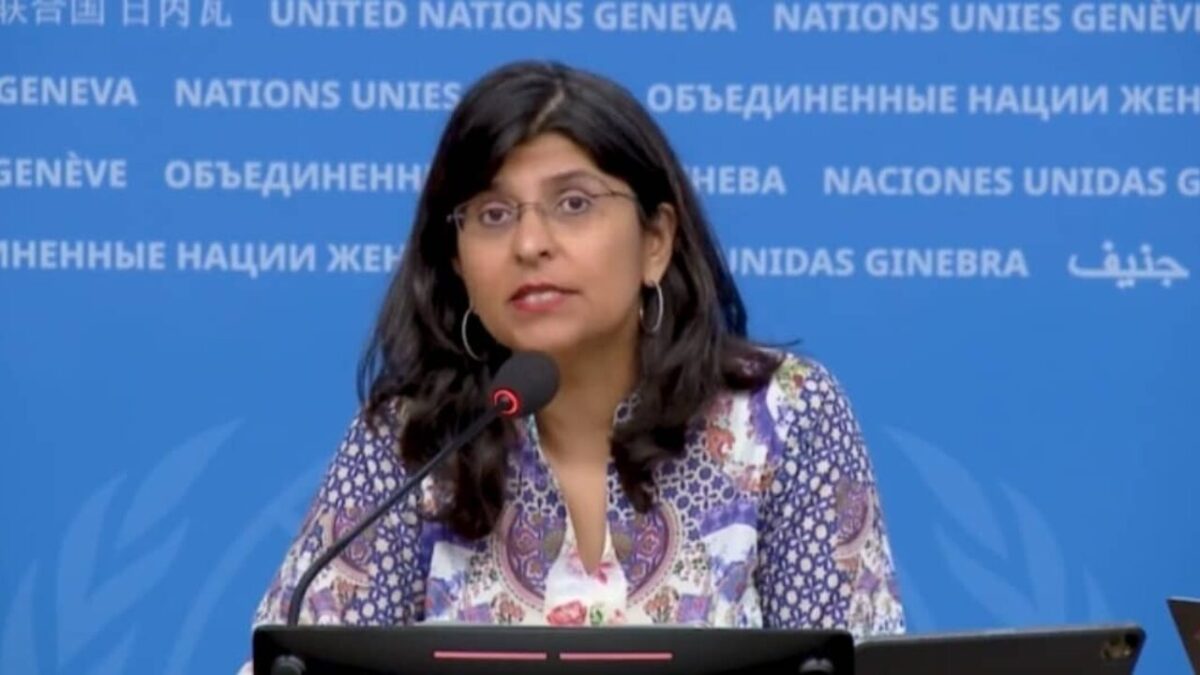Addressing a press conference in Geneva on Saturday, Ravina Shamdasani, spokesperson for the United Nations Human Rights Office condemned the Taliban’s new morality law and said the Taliban “are attempting to turn women into faceless and voiceless shadows”.
She called the Taliban’s new law “oppressive” and said it reinforces policies that silence women and strip them of their personal autonomy.
Shamdasani noted that the new law is intolerable and urged immediate action.
According to Shamdasani, the law includes vaguely defined restrictions that also affect other fundamental human rights, such as the right to practice religion freely.
“This law is a blatant violation of Afghanistan’s obligations under international human rights law, and the Taliban must repeal it,” she said.
Shamdasani warned that efforts to marginalize and render invisible half of Afghanistan’s population would only deepen the country’s humanitarian and human rights crises.
“Disempowering women and silencing their voices will exacerbate the dire situation on the ground,” she said.
At the same press conference, U.N. High Commissioner for Human Rights Volker Türk also called for the law to be revoked immediately.
“This sweeping and oppressive set of regulations further entrenches existing restrictions on women’s basic human rights, including freedom of movement, freedom of expression, and the right to live free from discrimination,” Türk said. The law mandates that women wear clothing that covers them entirely, including their faces, he added.
The Taliban’s actions have drawn widespread international condemnation. Germany, Australia, the Netherlands, and Canada recently announced in a joint declaration during the U.N. General Assembly that they plan to bring the Taliban before the International Court of Justice for violating the Convention on the Elimination of All Forms of Discrimination Against Women.
The foreign ministers of these nations have warned that if the Taliban do not stop their human rights violations, particularly against women, within six months, they will formally take the case to The Hague. Their initiative has garnered the support of over 20 countries, including U.N. Secretary-General António Guterres.
Guterres recently joined the growing calls for an end to the Taliban’s restrictions. “I stand with the nations and organizations demanding the immediate lifting of the Taliban’s discriminatory restrictions on women and girls,” he wrote on X.
“What is happening in Afghanistan can be compared to some of the most egregious systems of oppression in modern history,” Guterres added.




